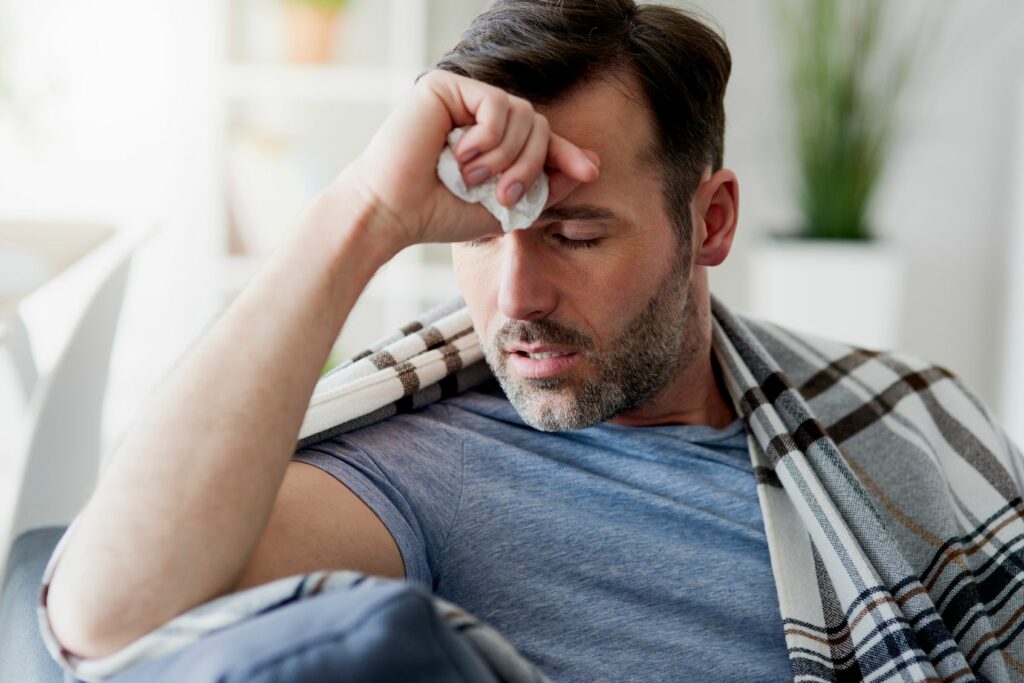Hay fever is known as seasonal allergies or seasonal allergic rhinitis. They are called seasonal because it usually causes symptoms during the spring and summer.
It occurs when a person is exposed to certain pollen, leading the body to release histamine and other chemicals that turn to wheezing, runny nose, and watery eyes. Everyone can get hay fever, but it is most common in people who live in areas where the pollen count is high.
Most are allergic to one or two particular pollens, which you can get from grasses, trees, and weeds that can trigger symptoms. Hay fever causes an estimated 26 million missed school days annually.
Allergy Symptoms
Seasonal allergy symptoms differ from person to person. Those with hay fever have symptoms of rhinitis during the pollen season, but they may not have rhinitis year-round.
Some of the common symptoms include:
- Sneezing
- Itchy, watery eyes
- Runny nose
- Nasal congestion
Diagnosing Seasonal Allergies
Hay fever is diagnosed by taking a detailed medical history and performing a physical examination. A doctor will ask about the time of year when symptoms are worst and the types of symptoms that occur.
You may be referred to an allergist, a doctor with expertise in diagnosing and treating allergies. The allergies usually conduct a skin prick testing.
During this testing, a small amount of allergen is placed on the skin by pricking or making a small scratch and then marking the area with a pen. After fifteen minutes, if a person is allergic to the substance, the skin will swell and turn red. The allergist then measures the bump and the redness using a ruler.
Allergists will also ask about chronic symptoms, such as nasal congestion, sinus problems, headaches, and eye irritation. Doctors will examine the patient’s nose and eardrums.
Treating Seasonal Allergies
People with seasonal allergies can take over-the-counter medications to relieve symptoms. Medications include antihistamines, nasal sprays, and decongestants. You can treat allergic rhinitis with several antihistamine drugs.
They are called H1-receptor antagonists and are available over-the-counter. Examples of these antihistamines include diphenhydramine (Benadryl), chlorpheniramine (Chlor-Trimeton), and loratadine (Claritin).
You can also cure allergic rhinitis caused by allergies with nasal steroid sprays and decongestants. The nasal decongestants are called azelastine (Astelin) and oxymetazoline (Afrin). Oral steroids can also be prescribed to reduce inflammation. They come in pill and patch form.
People with hay fever may also be prescribed allergy shots (Immunotherapy). A person is exposed to small doses of the allergen spray, drop by drop, or pill by pill over a few months to years. They may also be given hyposensitization injections of the pollen. This treatment reduces the body’s reaction to the allergens causing symptoms.
Preventing Seasonal Allergies
There is no cure for hay fever, but it is possible to treat the symptoms. Prevention of seasonal allergies includes:
- Avoiding allergens that trigger symptoms (For example, animals and mold can trigger allergies, so people should avoid those substances.)
- Going to a pollen-free area, such as the beach or cold places.
- Wearing protective clothing, such as a hat, keeps allergens out of the nose and mouth.
- Staying indoors during pollen season.
- Maintaining a healthy lifestyle and a nutritious diet can improve seasonal allergy symptoms.
- Taking medications, such as nasal steroids and antihistamines.
Conclusion
Exposure to pollen triggers seasonal allergies. They are diagnosed by taking a detailed medical history, examining the body, and looking at the skin. You can treat hay fever with over-the-counter medications, prescription medications, and allergy shots. Prevention includes avoiding the allergen, going to a pollen-free area, and staying indoors. A nutritious diet and a healthy lifestyle can also significantly help reduce symptoms.
Your Kids Urgent Care helps you with children’s urgent care needs in Tampa, FL, including medical assistance for seasonal allergies. Let us help your children feel better from hay fever. Contact us today!



